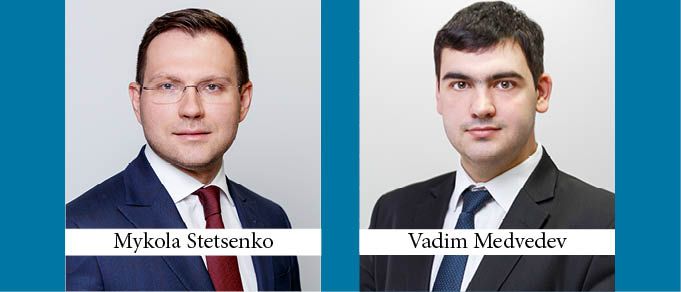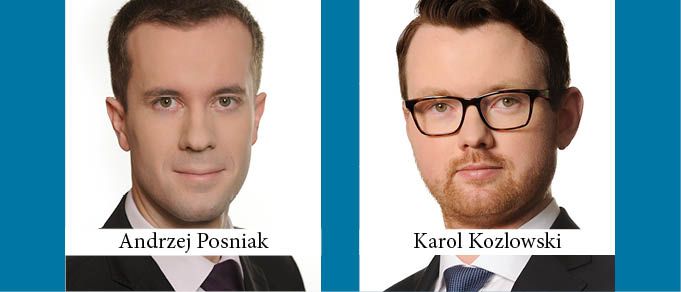Taxes are the most important instrument for the collection of revenues in the Bosnian and Herzegovinian economy and represent the largest portion of revenues for the country.
Operation Through Permanent Establishment in Moldova
The Republic of Moldova is a small Eastern European country with a market economy in development. Since its independence, Moldova has been keen to open its borders to foreign investment to vitalize its economy. To this end, Moldova has passed numerous legislative reforms to protect investments and encourage cross-border transactions.
The VAT Treatment of Electronically Supplied Services in Serbia
The steady growth of the digital products market and an increasing demand for digital products required an adjustment to the Serbian VAT rules applicable to the supply of electronically supplied services (ESS), and that adjustment finally occurred in 2017. Combined with new rules on the VAT registrations of foreign suppliers, VAT obligations related to ESS became more straightforward.
Lithuanian Tax Environment: Green Light for Investment
A favorable tax system is viewed as one of the most significant incentives for foreign investment in a given country. According to this year’s World Bank’s and PwC Paying Taxes study, Lithuania ranks 27th globally in terms of the ease of paying taxes. It is indeed a high standing, ahead of other CEE countries such as Romania, Poland, Slovakia, and Hungary. We dare say the ranking accurately reflects the efficient operation of Lithuania’s tax system.
Latvia’s Tax Reform on Its Way to Launch
The long-awaited tax reform has been finally approved by the Latvian parliament. Opposition to changes in such sensitive fields as taxes is inevitable, but it is clear now that the amendments to the country’s tax code will come into effect on January 1, 2018.
Romania’s Tax Boiling Pot Spills Over
Keeping track with the( hundreds of) changes to the Romanian tax legislation has never been an easy endeavor. This year things have been taken to a whole new level, as fiscal predictability, scarce as it was before, has disappeared entirely.
Transfer Pricing Disputes: The Coming Trend in Ukraine
Ukraine revised transfer pricing rules and introduced new reporting and documentation requirements in 2013. Since then, the rules have been changed every year. And three years after the introduction of the new transfer pricing (TP) rules, we are witnessing an increasing wave of TP audits and the first TP disputes.
Tax Advisory Introduced: Belarus Tax Litigation is About to Become Competitive
Tax Advisory Regulatory Situation
Historically Belarus has had a dual system of regulated legal services market, with one side populated by attorneys-at-law who served individuals and worked either individually or under the roof of territorial Bar Associations, and the other populated by licensed “business lawyers,” working both on their own and within law firms.
New Dimension of Taxation in Poland
The current government campaigned before the elections with the slogan “Plugging leaks in the tax system,” and it is now trying to achieve that goal by focusing its efforts on fighting harder against VAT fraud, counteracting aggressive tax optimization in income taxes, and increasing the effectiveness of tax audits.
The Country by Country Report and Its Effect on Turkish Tax Legislation
Reporting standards implemented within the frame of work conducted by the Organization for Economic Cooperation and Development (OECD) for the prevention of base erosion and profit shifting has increased the reporting obligations of multinational enterprises (MNEs).
Russian GAAR: Carrot, Stick, or Both?
The Russian tax landscape is going through a period of transformation. The average value of assessments as a result of tax audits is increasing and taxpayers are losing more disputes. Various changes to the tax laws have acted as a contributing factor. The introduction of the anti-abuse concept of “beneficial ownership” in domestic legislation, the development of tax residency and CFC rules, and the enactment of new thin capitalization rules are just a few of the recent changes that are already having an impact on taxpayers in Russia.
Simplified Entrepreneurial Income Taxation Act Creates a New and Innovative Taxation Option in Estonia
On January 1, 2018, a new taxation act will enter into force in Estonia – the Entrepreneurial Income Simplified Taxation Act (hereinafter the “Act”). From an IT point of view, the Act will create a new and innovative automatic mechanism for natural persons in the calculation and payment of taxes. The main concept of the Act is that natural persons can set up an entrepreneurial income bank account, where the taxation amount is calculated automatically and transferred to the Tax Authority without the natural person having to physically make or authorize any transfers. However, use of this new account may be limited in practice.
Tax Effects of Unfair Trading
Unfair trading is often referred to as the cause of crisis in various sectors, holding down small and medium enterprises. In practice, unfair trading is sometimes improperly confused with predatory pricing or distortion of competition. Unfair trading may also trigger serious tax implications.
Proposal for Temporary Approach to Taxation of Virtual Currencies in Slovakia
In 2008 Satoshi Nakamoto published a white-paper outlining electronic cash peer-to-peer transactions known as Bitcoin, the first virtual currency based on a technology known as blockchain. Virtual currencies present a new digital asset class that is still in a grey area in terms of defining the actual asset. This creates difficulties and uncertainty in the area of taxation of profits arising from the owning, holding, or disposing of the given assets.
Recent Developments in Austrian Tax Law
Increase in R&D Premium
Quasi-Judicial Tax Recourse: Saving Time (and Money) in Disputes with Tax Authorities
Almost four years ago, under pressure from its European partners and the IMF exercised by means of economic adjustment programs and loan agreements broadly known as “memoranda,” the Greek State adopted a new tax procedural code.
Data Privacy: Facing the GDPR Challenge in Romania
On July 29, 2017, a new regulation regarding the reception of construction projects (the “New Regulation”) was enacted by means of Government Decision no. 343/2017. The New Regulation, which replaced the former procedure (which was regulated by Government Decision no. 273/1994) in its entirety, provides a number of notable changes impacting the real estate and construction industry in Romania.
New Regulation Regarding the Reception of Construction Projects in Romania
On July 29, 2017, a new regulation regarding the reception of construction projects (the “New Regulation”) was enacted by means of Government Decision no. 343/2017. The New Regulation, which replaced the former procedure (which was regulated by Government Decision no. 273/1994) in its entirety, provides a number of notable changes impacting the real estate and construction industry in Romania.











































